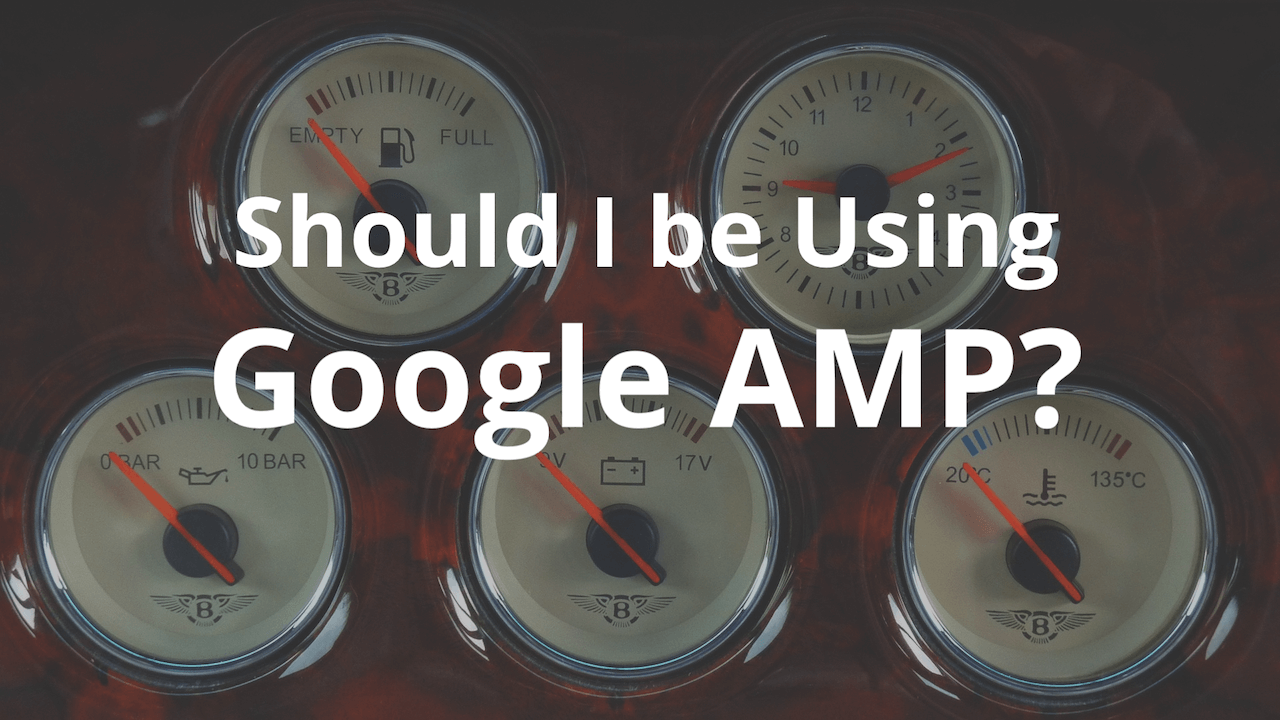Google’s AMP project, short for Accelerated Mobile Pages, came out of nowhere to become one of the more polarizing topics in the modern web. Okay, so maybe not nowhere. AMP came out of one of the largest and most powerful tech companies on the internet. In fact, one of the main criticisms of AMP is that it didn’t grow organically out of the community. Here’s a few thoughts going through my head as I thought about whether I should be using Google AMP.
What is Google AMP?
Basically AMP web pages are clones of your current website pages, but extremely stripped down. The goal of AMP is a faster web experience on mobile devices, so it wants you to get your web pages down to the bare bones content. So minimal, in fact, that you can’t even load many popular third-party javascript libraries, the sorts of things that can bloat a web page. Instead of writing in plain old HTML, you use a modified version called AMP HTML alongside AMP JS, their javascript library. The third leg of the Google AMP stool is caching– that is, storing this AMP page for quick retrieval. This is where it gets tricky.
What are the criticisms of Google AMP?
That third point- caching the AMP version of your website- probably wouldn’t be such a big deal, if it weren’t for the fact that Google is storing these cached versions on their servers. This means that visitors might be loading your content without even visiting your website.
Another major complaint is that Google is giving priority search result listings for website with AMP enabled. This is meant as a major incentive to speed up our websites, but as many tech writers are noting, feels like an incentive to give Google more control over the open web.
Can I enable Google AMP?
Yes, quite easily if you’re running WordPress. There’s a Google AMP plugin for WordPress, along with an additional plugin by Yoast to help integrate AMP with your SEO strategy. Add a few design tweaks in the settings menu, and within a few days, your AMP pages will start to be collected on Google servers for more distribution of your content.
Is it right for me?
This depends. For one thing, it may not affect you, depending on the type of content you write. AMP pages are typically blog posts, news articles, recipes, etc. AMP doesn’t always work for standard pages and isn’t a fully-realized solution for things like landing pages and lead funnels, though I wouldn’t be surprised if that changed.
Another thought to consider is the moral argument. Recently we’ve been seeing a backlash against a lot of the underhanded marketing tactics of the internet. It’s still the Wild West out here, but the marketplace is maturing. Especially if you’re a non-profit or cause-driven organization, you may simply not feel comfortable handing over so much control of your online business to a huge corporation. On the other hand, it may fit in perfectly with your online strategy and not post a threat at all.
I still go back and forth on AMP, finding myself turning it on and off depending on my mood and my general distrust of the internet-industrial complex. Sometimes I like to dig deep into new marketing strategies and other times I like to take a step back and reflect. Let me know how you feel about AMP and if you have any questions about it.


Leave a Reply